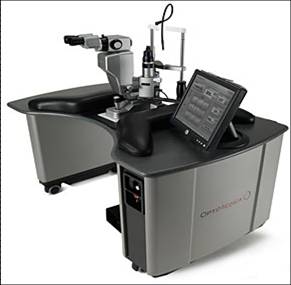What a Licensed Practical Nurse Does
December 11, 2008 by Rn2b
Filed under General Nurse Information, Licensed Practical and Vocational Nurse (LPN/LVN)
LPN or a licensed practical nurse can also be called LVN or a licensed vocational nurse. You can finish an LPN course in about a year, which means you get to earn immediately because you only study for a short period of time. If you think that Licensed practical nurses are not in demand in the society, there are many countries looking for LPNs to work at nursing homes and hospitals as well. Make sure to study in a school that will give you superb education about nursing so that even if you’ve studied for a short period of time, you are sure you’re getting the proper education needed to face the demands of society.

Licensed practical nurses not only know the basics of nursing but also does more technical work than just washing the patients, helping them walk, eat, and a lot more. They are reliable when it comes to giving injections and massages to the patients. Also, they can check the progression of the patients; vital signs, laboratory tests, and other improvements that they can note down. Their analysis counts.
However, a licensed practical nurse cannot take orders from doctors, only to those nurses who have a higher rank than them. Once a licensed practical nurse is considered an expert, he or she can now supervise nursing assistants.
According to the Bureau of Labor Statistics report last May 2006, those licensed practical nurses who work abroad more or less earn a median annual salary of $31,080 to $46,640. That’s a big money for a short period of education.
Certified Nursing Assistant vs. Licensed Practical Nurse
December 11, 2008 by Rn2b
Filed under Certified Nursing Assistant (CNA), Licensed Practical and Vocational Nurse (LPN/LVN)
A licensed practical nurse or a LPN generally takes care of people who are sick, wounded and disabled. They are supervised by a nurse with a higher rank, usually those are registered nurses. Doctors cannot give orders to licensed practice nurses and LPNs cannot assist doctors in the hospitals. All LPNs can do is to assist a higher ranking nurse in their workplace, however they are more knowledgeable when it comes to nursing compared to a certified nursing assistant.
A certified nursing assistant does the basics of nursing also with the supervision of a higher ranking nurse. However what they can do is very limited. The only advantage I can give when you are a certified nursing assistant is that you only study for a short time, meaning you only pay a little just to get certified. However, the disadvantage is much heavier; you cannot analyze the patient’s condition if he or she is progressing or not, doctors cannot give you orders, you cannot even dress wounds of people who are injured. All a certified nursing assistant can do is to dress the patients, help them walk; help them eat by feeding those who have trouble in getting up, wash them, and other basic aids that one can provide.
Licensed practical nurses on the other hand can do all the things that a certified nursing assistant know, but they are also knowledgeable on other tasks such as recording the patient’s progress; weight; height; blood pressure; pulse and a lot more. They know how to properly give injections and massages to patients. Laboratory tests can also be done by licensed practical nurses. An experienced licensed practical nurse can even supervise certified nursing assistants. Even though education is a bit longer compared to the CNAs, the knowledge you will gain is surely more beneficial when it comes to care giving.
HESI Exit Exam Facts
November 30, 2008 by Rn2b
Filed under Earning Your Nursing Degree, Licensed Practical and Vocational Nurse (LPN/LVN)
The Health Education System, Inc. or HESI have been giving exams to nursing students as a means to evaluate the current established nursing program. They assess the nursing students as to whether they are knowledgeable enough or are able to apply the different nursing concepts that are taught to them in certain situations.

There are different exams HESI provides: an Admissions exam to evaluate your chances of passing a nursing entrance exam, a custom exam to evaluate faculty specified nursing content, a specialty exam to evaluate specific clinical content, and the HESI Exit Exam that nursing students need to pass in order to become a qualified nurse.
The HESI Exit exam among all the tests given by the Health Education System, Inc. is by far the most important exam for any nursing students. The exam will evaluate whether you would be able to pass the NCLEX. Some hospitals would ask for your HESI Exit exam results if they would want to hire you in their staff so getting a good score in your exit exam is as important as taking the NCLEX.
Every nursing student must take the HESI Exit Exam as a pre-requisite before they graduate. Some schools do not allow any nursing students to graduate if they fail their HESI. A nursing student needs to prepare him or herself for the exam. The passing score of a HESI Exit exam differs with every school. So it is only wise for a student make sure that he or she is ready both physically and mentally to take the exam. Otherwise, it is advisable to take a break to mentally and physically prepare yourself for the exam.

